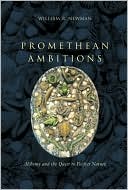Category Books
- Fiction Books & Literature
- Graphic Novels
- Horror
- Mystery & Crime
- Poetry
- Romance Books
- Science Fiction & Fantasy
- Thrillers
- Westerns
- Ages 0-2
- Ages 3-5
- Ages 6-8
- Ages 9-12
- Teens
- Children's Books
- African Americans
- Antiques & Collectibles
- Art, Architecture & Photography
- Bibles & Bible Studies
- Biography
- Business Books
- Christianity
- Computer Books & Technology Books
- Cookbooks, Food & Wine
- Crafts & Hobbies Books
- Education & Teaching
- Engineering
- Entertainment
- Foreign Languages
- Game Books
- Gay & Lesbian
- Health Books, Diet & Fitness Books
- History
- Home & Garden
- Humor Books
- Judaism & Judaica
- Law
- Medical Books
- New Age & Spirituality
- Nonfiction
- Parenting & Family
- Pets
- Philosophy
- Political Books & Current Events Books
- Psychology & Psychotherapy
- Reference
- Religion Books
- Science & Nature
- Self Improvement
- Sex & Relationships
- Social Sciences
- Sports & Adventure
- Study Guides & Test Prep
- Travel
- True Crime
- Weddings
- Women's Studies
Promethean Ambitions: Alchemy and the Quest to Perfect Nature » (1)

Authors: William R. Newman
ISBN-13: 9780226577128, ISBN-10: 0226577120
Format: Hardcover
Publisher: University of Chicago Press
Date Published: June 2004
Edition: 1
Author Biography: William R. Newman
William R. Newman is the Ruth N. Halls Professor in the Department of the History and Philosophy of Science at Indiana University. He is the author of Gehennical Fire and, with Lawrence M. Principe, Alchemy Tried in the Fire, both published by the University of Chicago Press.
Book Synopsis
In an age when the nature of reality is complicated daily by advances in bioengineering, cloning, and artificial intelligence, it is easy to forget that the ever-evolving boundary between nature and technology has long been a source of ethical and scientific concern: modern anxieties about the possibility of artificial life and the dangers of tinkering with nature more generally were shared by opponents of alchemy long before genetic science delivered us a cloned sheep named Dolly.
In Promethean Ambitions, William R. Newman ambitiously uses alchemy to investigate the thinning boundary between the natural and the artificial. Focusing primarily on the period between 1200 and 1700, Newman examines the labors of pioneering alchemists and the impassioned—and often negative—responses to their efforts. By the thirteenth century, Newman argues, alchemy had become a benchmark for determining the abilities of both men and demons, representing the epitome of creative power in the natural world. Newman frames the art-nature debate by contrasting the supposed transmutational power of alchemy with the merely representational abilities of the pictorial and plastic arts—a dispute which found artists such as Leonardo da Vinci and Bernard Palissy attacking alchemy as an irreligious fraud. The later assertion by the Paracelsian school that one could make an artificial human being—the homunculus—led to further disparagement of alchemy, but as Newman shows, the immense power over nature promised by the field contributed directly to the technological apologetics of Francis Bacon and his followers. By the mid-seventeenth century, the famous "father of modern chemistry," Robert Boyle, was employing the arguments of medieval alchemists to support the identity of naturally occurring substances with those manufactured by "chymical" means.
In using history to highlight the art-nature debate, Newman here shows that alchemy was not an unformed and capricious precursor to chemistry; it was an art founded on coherent philosophical and empirical principles, with vocal supporters and even louder critics, that attracted individuals of first-rate intellect. The historical relationship that Newman charts between human creation and nature has innumerable implications today, and he ably links contemporary issues to alchemical debates on the natural versus the artificial.
Journal of Interdisciplinary History
"Promethean Ambitions demonstrates Newman's mastery of the alchemical textual tradition; he is at his best when reconstructing the long afterlife of specific medieval arguments and showing how Renaissance artists and seventeenth-century natural philosophers alike engaged them even as they turned them to new ends....This erudite book is an important contribution to the intellectual history of art and nature in medieval and early modern Europe."—Tara E, Nummedal, Journal of Interdisciplinary History
— Tara E. Nummedal
Table of Contents
| Introduction : from alchemical gold to synthetic humans : the problem of the artificial and the natural | 1 | |
| Ch. 1 | Imitating, challenging, and perfecting nature : the arts and alchemy in European antiquity | 2 |
| Ch. 2 | Alchemy and the art-nature debate | 34 |
| Ch. 3 | The visual arts and alchemy | 115 |
| Ch. 4 | Artificial life and the homunculus | 164 |
| Ch. 5 | The art-nature debate and the issue of experiment | 238 |
| Afterword : further ramifications of the art-nature debate | 290 |
Subjects
 Art History & Criticism
Art History & Criticism  Renaissance Art
Renaissance ArtNew Age & Spirituality
 Alternative Spirituality
Alternative Spirituality  Occultism
OccultismNew Age & Spirituality
 Witchcraft and Magic
Witchcraft and Magic  Occultism
OccultismNonfiction
 All Nonfiction
All Nonfiction  Alternative Spirituality
Alternative SpiritualityScience & Nature
 All Science & Nature
All Science & Nature  Science - General & Miscellaneous
Science - General & MiscellaneousNonfiction
 Science & Nature
Science & Nature  All Science & Nature
All Science & Nature
